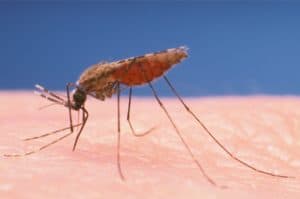
Malaria expected to be eradicated from 15 Indian states by 2020
pharmafile | May 15, 2017 | News story | Research and Development, Sales and Marketing | India, antimalarial drug resistance, malaria
In good news in the fight against antimalarial drug resistance, the Director of the National Vector Borne Disease Control Programme (NVBDCP), for the Indian government, has announced that they expect a serious reduction in the numbers of people being infected by malaria over the next three years.
In particular, they pinpointed 15 states that already have low levels of malaria-infection and suggest it can therefore be reduced to zero incidences over the coming years.
India has a particularly high incidence of malaria in its population and it has plagued the country of centuries, with ancient medical texts, such as Charaka Samhita, featuring references to the infection. The high number of infections, with around 14% of the population at high risk of malaria transmission, has meant that the fight against antimalarial drug resistance has focused on the country as part of its battleground.
“We believe that we can win the fight against malaria. However, we must not lose focus in Asia and the Pacific – and particularly in India – where the malaria burden remains a significant weight on families, communities, national economies and national health systems,” said Dr Nafsiah Mboi, Leaders’ Envoy and Board Chair for APLMA and former Minister of Health of Indonesia, on the need to continue the fight in India.
“By 2020 we will be able to eliminate malaria from 15 states with an annual parasite incidence of less than one case per thousand population. We are sure to eliminate malaria from these states by 2020,” Dr AC Dhariwal, Director of NVBDCP, in the health ministry, was reported saying by India Times. “There has been a decline not only in the number of cases of malaria incidence but also in the number of deaths because of the disease. It’s mainly because of the efforts of Bivalent Rapid Diagnostic Test (RDT) tests.”
The RDT tests are able to quickly identify the antigens produced by malaria parishes in the blood of an infected individual. The efficiency and ease of the test has allowed quick identification of those needing treatment and has led to a drop in the number of cases. This action is particularly important as the threat of antimalarial drug resistance is becoming a more prominent threat.
Ben Hargreaves
Related Content

First malaria medicine for infants under 4.5kg receives approval
Coartem (artemether-lumefantrine) Baby, or Riamet, has been approved by Swissmedic as the first malaria medicine …

FDA approves Roche’s test for malaria in blood donors
Roche has announced that the US Food and Drug Administration (FDA) has approved its cobas …

WHO recommends new vaccine for prevention of malaria in children
The World Health Organization (WHO) has announced that it has recommended a new vaccine, R21/Matrix-M, …






